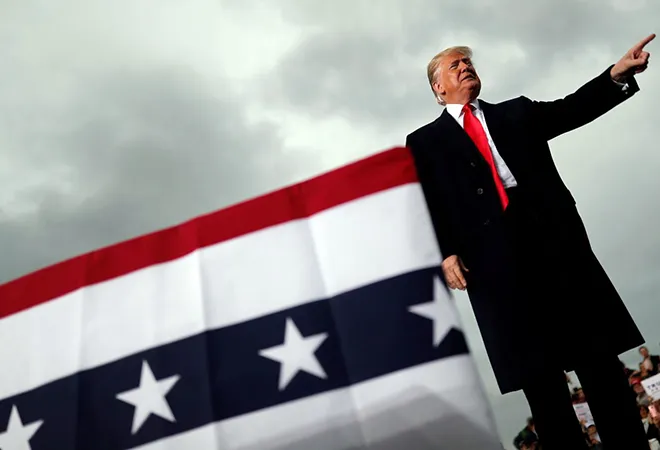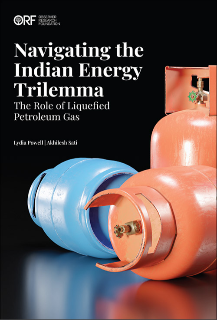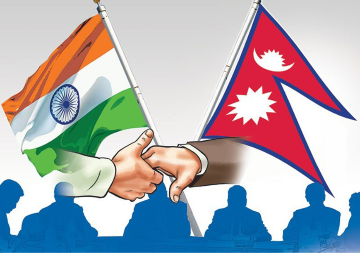
In May 2018, President Donald Trump withdrew from the JCPOA (Joint Comprehensive Plan of Action) or the nuclear deal that the US and five other European countries had signed with Iran in early 2015, stating that it was clearly “not protecting the national security interests of the US, or of our allies and partners (though the allies thought otherwise), nor was it making Iran behave like a normal country.” The first set of sanctions that were lifted earlier were re-imposed on 7 August and the second, more severe set of sanctions were imposed on 5 November this year.
Since it was not a bilateral treaty between the US and Iran and there were five other parties to the deal, who did not agree with President Trump’s assessment, Iran decided to abide by the deal as long as the European partners stuck to their part. France, Britain, Germany, Russia and China have decided to continue with the deal. They, however, realise that fulfilling the commercial aspects of the deal without the support of the US and its powerful currency, the dollar, would be rather unviable and have therefore set-up a Special Purpose Vehicle to be funded by their respective governments. This was felt necessary to protect the commercial interests of small and medium enterprises of Europe that wish to continue their trading with Iran, particularly in view of the exit of major companies such as the TOTAL and Renault of France, Siemens of Germany and the Airbus Industries owned by the EADS, an European aero-space company all of who have major exposure to the US and global markets.
The question is, does Trump have any policy towards Iran, other than the hatred he displayed towards it and the so-called ‘botched nuclear deal’ from his campaign days? Or did he withdraw form the JCPOA because any international deal done by President Obama was not in ‘America’s interest’ according to him, such as the Paris Climate Change Accord, the North America Free Trade Alliance (NAFTA), and the Trans-Pacific Partnership, all of which he junked after taking office.
The question is, does Trump have any policy towards Iran, other than the hatred he displayed towards it and the so-called ‘botched nuclear deal’ from his campaign days? Or did he withdraw form the JCPOA because any international deal done by President Obama was not in ‘America’s interest’ according to him, such as the Paris Climate Change Accord, the North America Free Trade Alliance (NAFTA), and the Trans-Pacific Partnership, all of which he junked after taking office. It is quite evident that Trump did not have a compelling set of arguments for his actions against Iran, particularly when the sole body that was mandated to oversee the implementation of the deal, the IAEA, had repeatedly testified that Iran was in full compliance of the nuclear deal.
Now his Secretary of State, Michael Pompeo, is attempting to fill in the intellectual vacuum, in the latest copy of the Foreign Affairs, (Nov-Dec 2018). Mike Pompeo has even come up with a ‘Trump Doctrine’ (gleaning out some sense from the hundreds of Tweets that Trump issues, mostly at midnight), which apparently “reverses the Obama Administration’s preferred posture of ‘leading from behind,’ an accommodationist strategy that incorrectly signaled diminished American power and influence.” “Leading from behind at best only delayed Iran’s pursuit of becoming a nuclear power, while allowing the Islamic Republic’s malign influence and terror threat to grow,” says Pompeo. This diagnosis is, however, not shared by the other five signatories to the JCPOA.
Pompeo says that President Trump follows a multi-pronged pressure campaign with reference to Iran. Economic sanctions is one part while deterrence is another part. The goal of these sanctions is to force the Iranian regime to make a choice: whether to cease or persist with the policies that triggered the sanctions in the first place. Of course, the end objective of the sanctions has always been about ‘regime change.’ Having failed to achieve that with the policy of sanctions for the last three decades or more, the Trump Administration has now been talking of ‘behaviour change’ of the regime; a decidedly more modest objective.
Another stated objective is to expose the corruption and the Mafiosi nature of the Iranian regime, says Pompeo. Of course, Pompeo adds for good measure that President Trump does not want another long term US military engagement in the West Asia — or in any other region for that matter. He also says that another important aspect of Trump’s diplomacy is his willingness to talk to the staunchest adversaries of the US, thereby leaving a window open for negotiations even with the Iranian regime.
No Iranian citizen has been caught either committing or planning a terrorist attack on US soil in the last three decades or more. And most of those who committed such terror attacks have come from the Sunni Arab world, the maximum number being from Saudi Arabia as was in the case of 9/11 attacks.
Frankly, it is hard to accept the argument that Iran poses a serious threat to American security or its national interests. In fact, no Iranian citizen has been caught either committing or planning a terrorist attack on US soil in the last three decades or more. And most of those who committed such terror attacks have come from the Sunni Arab world, the maximum number being from Saudi Arabia as was in the case of 9/11 attacks. Such being the facts, why is President Trump so paranoid about Iran. The point is both Trump and Pompeo are merely echoing the dangers highlighted by Israel and Saudi Arabia, their strongest allies in the region. Their main argument is that Iran is funding and supporting violence through Hezbollah in Lebanon, Hamas in the Palestinian territories, the Assad regime in Syria, the Houthi rebels in Yemen, Shiite militias in Iraq, and that its agents are plotting terror attacks around the world. The fact that in almost all these cases, Iran is reacting to Israeli and Saudi provocations seems to have completely escaped the attention of Pompeo. But that has been the hallmark of US policy in the West Asia since the overthrow of the Shah of Iran in 1979.
As long as the US continues to rely on its two toxic allies — Israel and Saudi Arabia — to shape its policies in the West Asia, America will continue to muddle its way through wars and turmoil in the region. Whatever be the failures of last President Obama, his decision to cut down America’s reliance on Saudi Arabia, his refusal to be bulldozed by Benjamin Netanyahu and his relentless pursuit of peace with Iran was a refreshing change in the US policies that have unfortunately been turned back full circle by an intellectually-challenged President who succeeded him in the White House.
The views expressed above belong to the author(s). ORF research and analyses now available on Telegram! Click here to access our curated content — blogs, longforms and interviews.




 PREV
PREV


